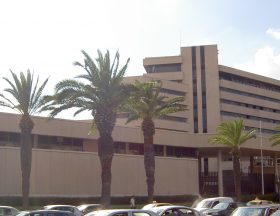While it had forecast a growth rate of 3.5% for the Tunisian economy in 2022, the World Bank (WB) has revised its estimates downwards and is now expecting growth of 3%.
Indeed, as indicated in its April 2022 economic bulletin on growth forecasts in the MENA region, growth in Tunisia will remain very modest over the medium term due to several pre-existing structural challenges and economic conditions. .
Inflation is expected to continue its upward trajectory, with an inflation rate of 6.5% in 2022 and 2023, and the rate of poverty and vulnerability is not expected to return to pre-crisis levels before 2024. Uncertainties remain important since concerns about the sustainability of Tunisian debt remain high and the country’s vulnerability to rising commodity prices weighs heavily on economic and social stability.
The trade deficit widens by 1.2 billion TND between the first quarter of 2021 and that of 2022
In a context of rising trade, the trade deficit over the first three months of the year fell from 3.1 billion TND in 2021 to 4.3 billion TND in 2022 (from 956.2 M to 1.3 billion EUR), i.e. a deterioration of 40.2% according to the INS.
Exports in the first quarter of 2022 recorded an increase of 26.2% to 14.1 billion TND, or 4.4 billion EUR, compared to an increase of 6.2% in the same period of 2021 (11.2 billion TND, i.e. EUR 3.5 billion).
Imports recorded an increase of 29.2% to 18.4 billion TND, or 5.7 billion EUR, after a very small increase of 1.5% during the first quarter of 2021 (14.2 billion TND ).
At the sectoral level, the increase in exports concerns in particular energy (up by 679.3 M TND for mines, phosphates and derivatives (up by 471 M TND to reach 780.4 M TND), textiles, clothing and leather (+20.9%, to 2.7 billion TND), mechanical and electrical industries (+13.3%, to 5.9 billion TND) and agro-food industries (+19.7% at 1, 9 billion TND) On the imports side, their increase comes mainly from energy (+87.2%, to 2.8 billion TND), raw materials and semi-finished products (+36.7%, to 6.7 billion TND), consumer goods (+12.8%, to 2.4 billion TND) and capital goods (+9.5% to 2.9 billion TND).
Geographically, the trade deficit remains mainly linked to trade with China (-2.0 billion TND), Turkey (-1.4 billion TND), Algeria (-871.6 M TND) and Russia (-561.7 M TND). Conversely, Tunisia recorded a trade surplus with France (+933.6 M TND), Germany (+914.5 M TND) and Libya (+490.3 M TND).
In addition, the deficit in the energy trade balance increased by 62% billion TND to 1.7 billion TND (representing 39% of the total deficit). between the first quarter of 2021 and 2022, rising from 1 billion TND to 1.7 Md TND (representing 39% of the total deficit).
Source Embassy of France in Tunisia











Réagissez à cet article